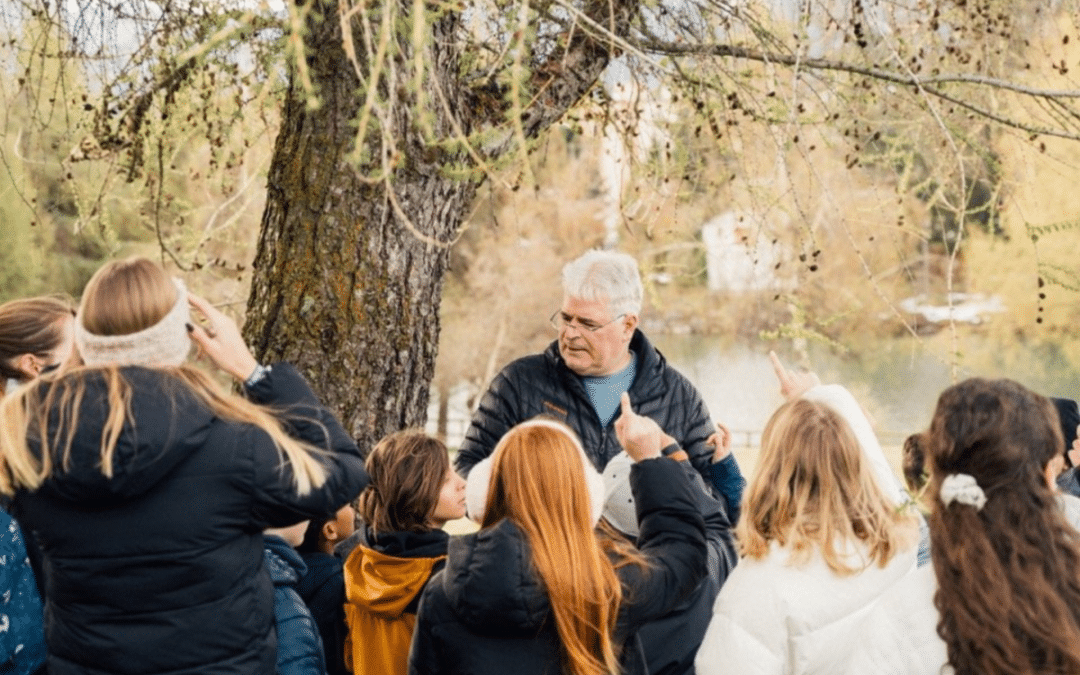By JONATHAN SMITH
Who benefits from golf? This might seem an odd question, or one with an obvious answer. Scratch a little deeper, and the question becomes more complex — and more important to the future of the sport.
In a world increasingly driven by sustainability, we at GEO Sustainable Golf Foundation believe that golf needs to further strengthen and promote its social value, alongside its environmental stewardship. There is a critical connection — an interdependency between people, community and planet — that golf is ideally placed to demonstrate. Clearly, the 80 million golfers around the world benefit from golf. They get lifelong, intergenerational physical and emotional health benefits.They relish the sometimes serious, but more often friendly competition that the game offers, with its level playing field that allows people of different abilities to compete fairly. They can stay active for longer, spending significant spells of fun, sociable time in nature.Studies have shown that golfers live longer, and participation should be considered preventative treatment, helping take pressure off health services.
Beyond that? Many people work in the sector, even if they don’t play.There is a wealth of skilled and diverse career opportunities within a large, multifaceted sector. Golf is an importan t employer and a source of inward investment for many communities and regions, particularly in rural areas.Club managers, course managers, club professionals, marketers, equipment and merchandise manufacturers and distributors, tournament teams, media, tour operators, course designers, builders and many more are directly employed in the golf industry. Indirectly, golf also supports a vast supply chain of materials and services, including food, technology, machinery, equipment, textiles, aggregates, and more.
Beyond that? There are golf fans, including a number that don’t play, who are entertained, either as spectators at tournaments or as at home viewers—adding an enriching element into people’s lives. More personally and subtly, there are those who don’t play but gain a great deal of pride—and often comfort—from the fact members of their family do. This is not often recognized, but it is a positive aspect of family life knowing young people are outdoors, in safe and healthy surroundings, socializing and learning from others.
Equally, there is peace of mind when the aging population are staying active and engaged socially.There are also local community members who benefit from access to recreational space on or around golf courses – walking, cycling, jogging, birdwatching and horse-riding.Then, there are the local community groups that collaborate with golf clubs and benefit from donated tee times, charity fundraisers, and other forms of support. And through the significant charitable purposes of tours and tournaments, golf has a very substantial financial, cause-based impact, reaching billions of dollars to support primarily human health and social projects. Golf is a conduit for meaningful and important individual and corporate philanthropy.
And beyond that? Perhaps less obviously, local communities also benefit tangibly from the wider ecosystem services provided by golf greenspaces, including air cooling, shelter and shade, air purification, noise abatement, flood alleviation in watersheds, plus many other physiological benefits of being near nature. All of these being especially important in expanding urbanized towns, cities, and mega-cities. It is now well established just how much our quality of life is related to the quality of our environment. •••That’s a very considerable range of benefits to individuals, communities and society.
.It doesn’t sound like a sector that should struggle with its image, does it? So why does the wider public perception of golf seem different? Somehow, it’s often seen as self-serving, benefitting only a small segment of society, consuming much to generate little for only a few.We see across the media—and not just social media—an increasingly sophisticated commentary portraying golf as a sport that takes up a lot of land and other resources without delivering a matching social benefit.
“People just don’t understand the game” is a commonly heard phrase, but a fairly unproductive one. In a world driven by sustainability — which includes not only environmental stewardship but also ethical behavior and social equity — golf would do well to convey its message of social responsibility and value more strongly out to the world. And that message cannot just be just what we are already doing; it needs to go further. It should put more focus on recognizing the additional opportunities and how golf will work even harder for communities in a broader range of ways. It should show ambition and innovation to do the maximum, not the minimum. In some of these aspects, it might be helpful to consider that golf isn’t strong yet, and arguably, in certain instances, isn’t keeping up with other sectors, and to look for those places and practices that can fill the gap.
A few important trends in the public, corporate and civic worlds where golf has a larger role to play—and, and needs to be seen playing it—include: Low-carbon communities Nature-based solutions and ecosystem services Connecting people with nature restorationCitizen science and STEM education for young peoplePartnering and collaborating with local social and environmental NGOsBroader charitable contributionsSustainable citiesCultural diversity and inclusion This is when, in terms of golf and communities, the sport begins to play to its potential. The world needs significant forces for good—influential organizations and sectors, such as sports, that genuinely ‘get’ sustainable development and strive to deliver it. The deep version, not the superficial ‘business as usual’ approach.
Why not golf as that valued force for good—socially, economically, and environmentally? Overcoming challenges to create opportunities, safeguarding the game, and, at a time when it is most needed, stepping forward as the sport that is willing and able to play a leading role. For the dedicated, growing team at GEO Sustainable Golf Foundation, we are each motivated by our longstanding commitment to help golf achieve more—to drive further —faster, easier, and with more individual and collective impact than might be the case without a dedicated Foundation as part of the team. Helping to build another kind of community. One that exists within and across golf—real people with real purpose, doing real things for real impact. Acting locally, contributing globally. Challenging. Collaborating. Celebrating. All under the banner of the great game of golf.

Jonathan Smith is widely considered a leading pioneer in the sport and sustainability movement. He is founder and Executive Director of GEO Sustainable Golf Foundation, a non-profit based in North Berwick, Scotland, serving courses, tournaments, associations and people around the world for nearly 20 years
Feature Photo Courtesy of Sustainable.Golf

